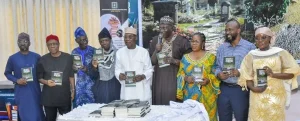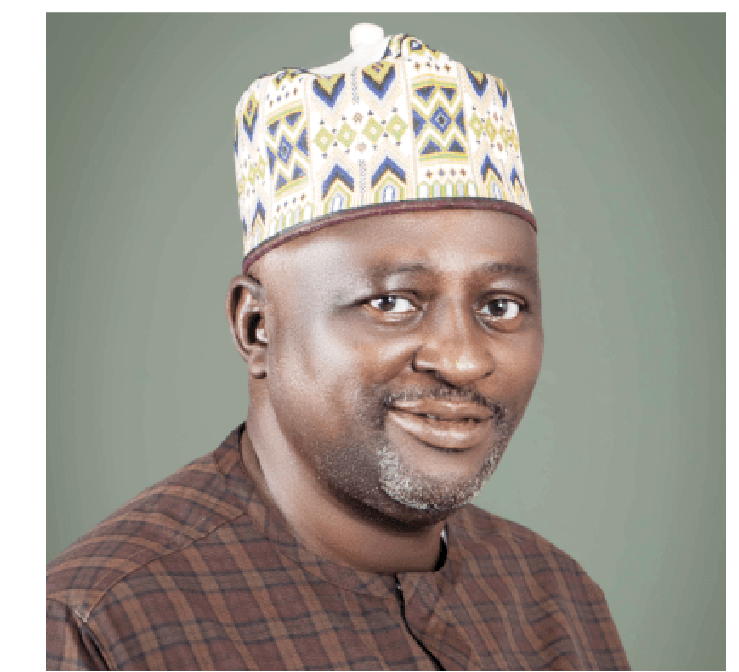Writer and a former President of the Association of Nigerian Authors (ANA), Denja Abdullahi, has described poetry as a language that speaks to everyone.
This is as he urged Nigerian poets to use their works to promote peace and social justice.
Abdullahi made the call in an interview with the News Agency of Nigeria (NAN) on Saturday at the sidelines of the August edition of the monthly “Reading and Writers Dialogue” in Abuja.
The Reading and Writers Dialogue is a flagship programme of ANA Abuja chapter that brings together authors and other literary stakeholders to discuss the works of a selected Guest Author.
The event with the theme “Celebrating the Embrace of Theatre and Poetry”, was also used by the writers to celebrate the former ANA president’s 56th birthday and to launch his book ‘Chants in a Cemetery.’
According to Abdullahi, poetry is a veritable tool for challenging norms, exposing injustice, fostering empathy, as well as creating a shared emotional space for dialogue, unity and healing.
He said by using evocative language, poets act as societal mirrors, reflecting realities, and inspiring action for a more peaceful and egalitarian society.
“Poetry should address societal issues, and should not just be about good things, because it can connect to you, inspire you and your spirit.
“It is a language that speaks to everyone, it is something that we use to communicate change, we can use it to teach and talk about the environment, including climate change.
“So, poetry should be used as a tool for mobilisation, for participation and orientation of our minds so we can have a better society.

“People are fighting all over the place, including terrorism and insurgency, but poetry can contribute to national peace and harmony,” he said.
Abdullahi, a retired Director of the National Council for Arts and Culture(NCAC), expressed delight for the ANA’s support and goodwill.
He called for mentorship for young writers for them to grow and contribute their quota to nation building.
“Our young poets are doing very well because they are now doing performance poetry, and people are making poetry to be lively.
“Unlike before when people cracked their heads to understand poetry, the young ones now are taking poetry to different places,” he said.
In their goodwill messages, some of the literary icons lauded Abdullahi for his contributions to the writing craft, both as a prolific writer and in his service to ANA.
Mabel Evwierhoma, a Professor of Drama and Theatre at the University of Abuja, said the former ANA president started his literary trajectory as a young person, and should be emulated by young writers.
“Our young people have a lot to learn from him, and that is why I am happy they are part of the audience today and they participated actively.
“They, too, would want to be creative artists and engage with their own audience whether it’s in social media, whether it’s in theater or whether it’s in general society.
“Intentional mentorship is important, especially as parents, you know, we should try to encourage our children by being deliberate.
“We should be giving them books to read, letting them watch plays on stage and encouraging them to write,” she said.
Chukwudi Eze, Chairman ANA Abuja, commended Abdullahi for using his works to promote societal change and hold leaders accountable.
“Denja Abdullahi is more than a name in the Nigerian literary space as a prolific poet, accomplished playwright, cultural advocate, essayist, and former president of our great association.
“His work connects generations and genres, reminding us that storytelling is not just a craft but a cultural duty.
“In works like Mairogo, Death and the King’s Grey Hair, and A Thousand Years of Thirst, Denja gives voice to our shared histories, our cultural anxieties, and our collective hopes.
“He sees poetry not as a mere language but as a movement, he sees theatre not as mere performance, but as communal renewal.
“His career as both a creator and a builder, including his tenure at the NCAC, reflects a lifelong commitment to using the arts as a vehicle for national transformation and human progress,” he said.
NAN reports that the event also featured a discussion panel, poetry and other presentations by students, and the highpoint was a live theatre performance.



